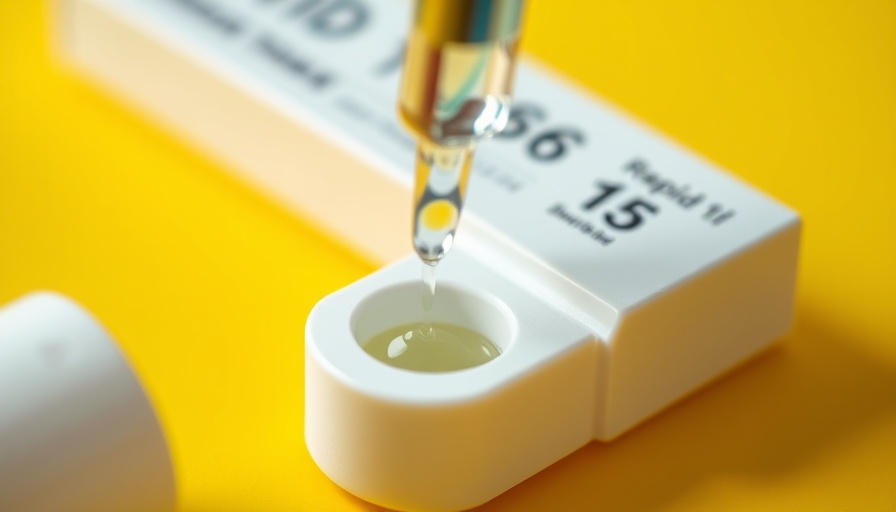
Why Tween Skincare Routines Might Be Harmful
In a world where social media trends dictate beauty standards, the skincare routines tweens and teens showcase on platforms like TikTok are becoming more popular. However, these seemingly harmless habits are raising a red flag among dermatologists. A new study published in the journal Pediatrics reveals that these routines may put young skin at risk for long-term health issues due to inflammatory reactions and allergic skin responses.
The Study: What Researchers Found
In this pivotal study, researchers from Northwestern University created TikTok accounts posing as 13-year-olds to explore skincare content tailored for young audiences. Over their investigation, they analyzed around 100 videos made by content creators aged 18 or younger, discovering that some children's multistep skincare routines could have serious repercussions. Each regimen included an average of six to more than a dozen products, often featuring multiple irritating ingredients.
Unfortunately, only about 26% of these videos mentioned sunscreen, a critical component for long-term skin health. Moreover, many of the products, while trendy, contained active ingredients commonly found in adult skincare that are not suitable for younger, more sensitive skin.
Why Are These Routines Problematic?
One concern dermatologists have is that products intended for adult skincare often use strong active ingredients, including retinoids and acids. These are designed to address mature skin issues such as wrinkles and dark spots, not the delicate skin of tweens and teens. Hallie McDonald, MD, emphasized, "Adult skincare products can trigger allergic reactions in young skin that is still developing, potentially leading to lifelong sensitivities to various ingredients."
Additionally, excessive use of these products can strip away natural skin barriers, causing irritation and lifelong skin complications.
What Parents Need to Know
As teens become increasingly engrossed in their skincare routines, many parents feel the urge to support their children’s interests. However, it’s crucial for adults to guide them toward gentler, more appropriate skincare practices. Experts suggest opting for a minimalist approach that prioritizes hydration and protection over complex regimens filled with potentially harmful ingredients.
It's advisable for parents to research and select products that are specifically designed for younger skin. This not only helps prevent irritation but also establishes a positive relationship with skincare rooted in health and safety rather than appearance alone.
The Positive Side: Simplified Skincare
Dermatologists recommend adopting a gentle skincare routine that reinforces the fundamentals. A basic regimen might involve just a mild cleanser, moisturizer, and sunscreen. This approach can effectively care for young skin while reducing the risk of adverse reactions.
Emphasizing healthy habits from an early age can cultivate a sense of wellbeing beyond mere aesthetics. Tweens and teens can learn the importance of skincare rooted in self-care, helping them feel empowered in their routine.
Seeking Expert Guidance: When to Consult a Dermatologist
For parents concerned about their teen’s skincare choices, consulting with a dermatologist can provide additional insights. Regular check-ups can help monitor skin health, and professionals can recommend products that suit a young person's specific needs and concerns. This proactive approach can lead to healthier skin habits that last a lifetime.
Conclusion: Encouraging Healthy Habits
Awareness of the potential risks associated with popular tween skincare routines is critical for parents and guardians. Supporting healthy practices is more important than ever in a landscape dominated by influencer culture. Instead of chasing trends, let's prioritize long-term skin health and promote practices that not only protect but nurture young skin.
To learn more about how to guide your tween or teen towards effective and safe skincare, consult a dermatologist or dive into research that ensures the best practices are adopted.
 Add Row
Add Row  Add Element
Add Element 



 Add Row
Add Row  Add
Add 


Write A Comment